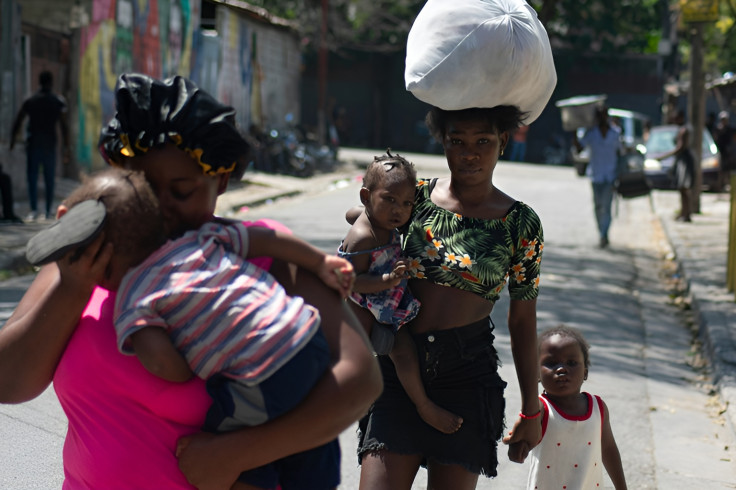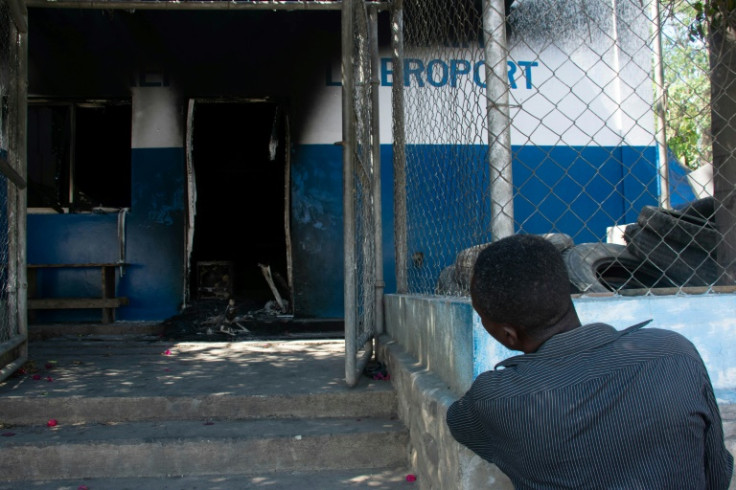
The social and political collapse in Haiti has not yet led to an increase in migrants from the country trying to reach the United States through the Caribbean Sea, two officials told CBS News.
Should that eventually be the case, they added, authorities have a longstanding contingency plan that includes housing migrants at the Guantanamo Bay Naval Base, located in the southeast end Cuba.
The U.S. has been leasing that land since 1903. It includes a center where officials have been screening asylum-seekers for years and is separate from the detention center, which holds dozens of people suspected of terrorism.
"The fact that we are always considering options does not mean we will take action immediately, or at all," a National Security Council spokesperson told CBS News about the possibility of housing migrants in the area.
As has been the case for decades, U.S. authorities are currently repatriating migrants intercepted at sea, preventing them from reaching the country. According to CBS News, the Coast Guard repatriated 65 Haitians to their country last week, the total figure being 118 for fiscal year 2024.
However, officials have shown concern about the possibility that figures increase substantially as violence continues to increase in Haiti, leading to the collapse of all basic services and political order. Screening facilities at Guantanamo could be overwhelmed if daily detentions exceed 1,000.
The U.S. has started evacuating some American citizens fleeing from widespread violence and chaos, with the first flight arriving in Miami on Sunday. The flight, handled by the U.S. government, departed from the northern city of Cap-Haïtien, as the country's main airport, located in capital Port-au-Prince, remains closed following an armed attack aimed at preventing Prime Minister Ariel Henry from returning.

The State Department announced it would offer a limited amount of such flights from American citizens. The country's embassy in Haiti had already urged all citizens to leave "as soon as possible" earlier this month. Ten other nationals arrived on Tuesday in a private plane chartered by missionaries in the country.
"We continue to explore options that we have at our disposal when it comes to American citizens interested in departing Haiti," deputy State Department spokesperson Vedant Patel said Tuesday. He added that nearly 1,000 have filed a form seeking to leave the country.
The U.S. has already evacuated all non-essential staff from its embassy and flew in additional forces to beef up security in its compound, located in a neighborhood that has largely fallen into gang control.
Meanwhile, security forces killed at least three people on Monday while repelling an attack on the central bank. The Bank of the Republic of Haiti (BRH) is one of the few key institutions still operating in the business district of the capital, which has been overrun by armed groups for the past three weeks.
Haiti has been rocked by surge in gang violence since late February when armed groups raided a prison, releasing thousands of inmates, as they demanded Prime Minister Ariel Henry resign.
Last week Henry agreed to step aside to allow the formation of an interim government, following pressure from neighboring Caribbean countries and the United States.
Talks among political parties and others are underway to form a transitional council that would name an interim prime minister to get the country ready for elections at some point. Haiti now has no president or parliament. Its last election was in 2016.
No official timeline for forming this council has been announced, but United Nations Secretary-General Antonio Guterres on Tuesday urged "all Haitian stakeholders to put aside their differences and take immediate action on the implementation of the transitional governance arrangements," his deputy spokesman Farhan Haq told reporters.
© 2024 Latin Times. All rights reserved. Do not reproduce without permission.







